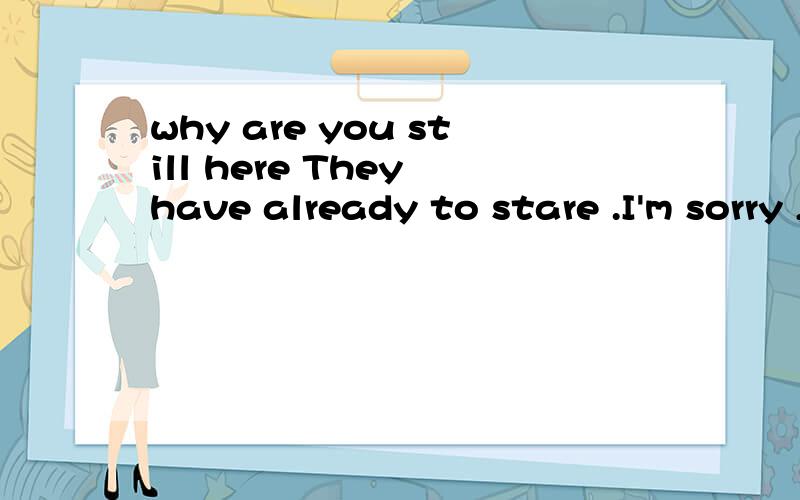why are you still here They have already to stare .I'm sorry ,but I ------ when to leaveA didn't tell B wasn't told C don't tell 填哪个,并讲解,
来源:学生作业帮助网 编辑:作业帮 时间:2024/07/08 18:53:39

why are you still here They have already to stare .I'm sorry ,but I ------ when to leaveA didn't tell B wasn't told C don't tell 填哪个,并讲解,
why are you still here They have already to stare .I'm sorry ,but I ------ when to leave
A didn't tell B wasn't told C don't tell
填哪个,并讲解,
why are you still here They have already to stare .I'm sorry ,but I ------ when to leaveA didn't tell B wasn't told C don't tell 填哪个,并讲解,
B
你为什么还在这?他们都已经开始了.
对不起,但是我没有被告知什么时候离开.
是被动式,A以前为没有说C为现在没有说
被动式
1.谓语动词中叫被动语态.
构成:be + vt-ed 或 be + vi-ed +prep
其中be动词是用来体现时态的,也就是通过be的变化体现时态.
比如:am/are/is + vt-ed 是一般现在时;was/were + vt-ed 是一般过去时等;
2.非谓语动词中不定式有被动式,-ing分词有被动式:to be done; to have been done; being doing; having been done;
什么时候用被动式?
简而言之:
及物动词后面没有宾语时,就考虑用被动式
B
题目:
你为什么还在这里?他们已经盯。很抱歉,但我------何时离开
A.没有告诉 B.没有告诉 C.不要告诉
真确答案:B,没有告诉
B
没有被告知